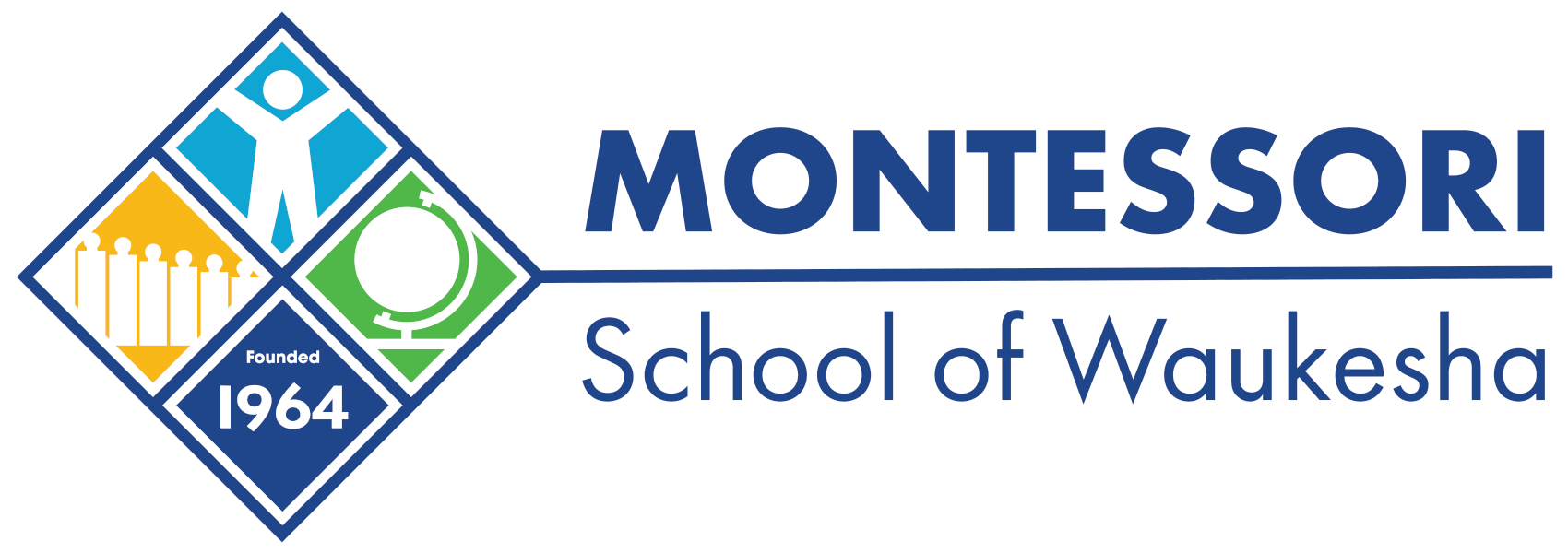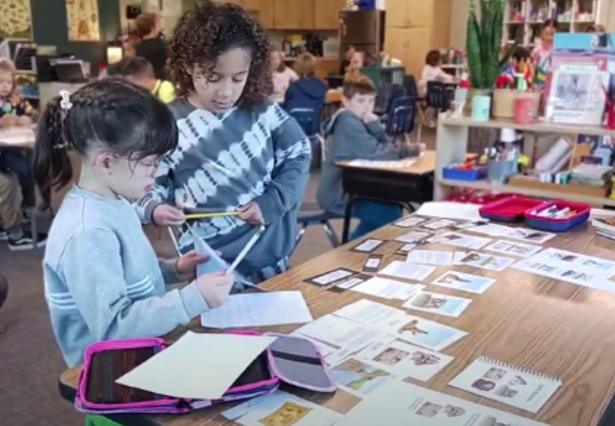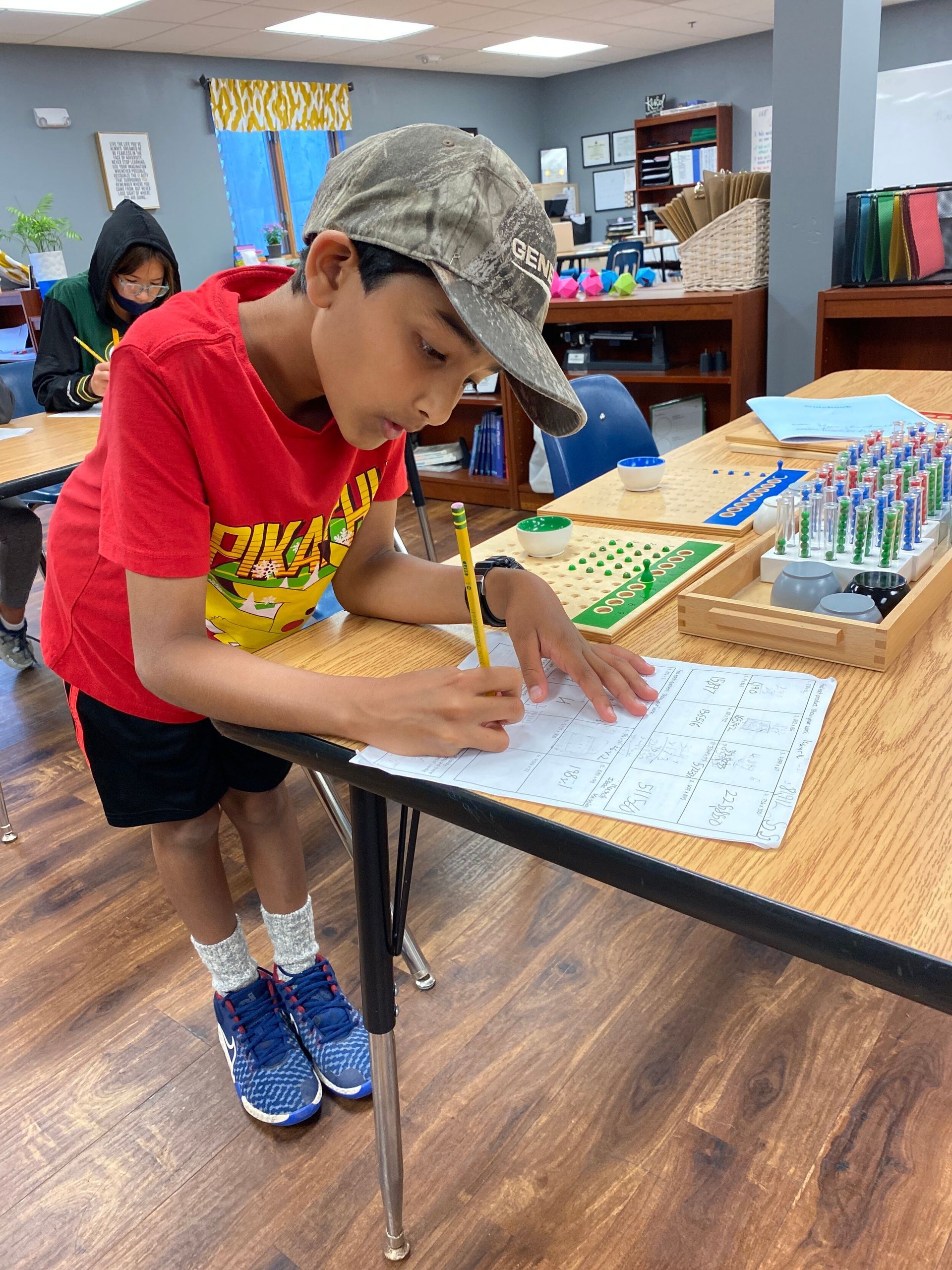Elementary Program Overview
Ages 6-12 years (Grades 1 - 6)
Lower Elementary Program Overview
Our Lower Elementary classrooms serve students ages 6 - 9 years old (1st-3rd grades) in a child-centered environment that is mindful of a child’s characteristics at the Second Plane of Development.
We maintain a three-hour, uninterrupted work cycle and a full complement of age-appropriate Montessori materials. Each Elementary classroom has a Montessori trained lead teacher who is also licensed by the WI Department of Public Instruction and a dedicated Paraprofessional. The Montessori curriculum, which guides our lessons, encourage intellectual growth, reasoning, using the imagination, abstract thinking, independence, and social responsibility.
While students progress at their own pace, teachers observe the children, determine competency by various assessment methods, and then provide new lessons as appropriate. Dr. Montessori famously observed that the hand is the instrument of the mind, and with a variety of interactive materials in the classroom, students can use and reference them continually during the work cycle.
Upper Elementary Program Overview
At the Upper Elementary level for students ages 9 - 12 years old (4th-6th grades), teachers primarily present small group lessons to introduce new material to the students and to expose them to new subject areas and concepts. The class schedule also allows for students to choose their own work and dig deeper into areas of interest. Students are encouraged to pursue knowledge in these personal interest areas, develop original ideas, and set plans into motion.
Students receive lessons in the areas of grammar, language, science, social studies, and math. Small group lessons allow for maximum teacher contact when needed. It also allows for more complex material to be sequenced appropriately throughout the three-year cycle. In literature, discussion-based class formats are facilitated by the teacher, but directed by the students. The concepts discussed by the students in one lesson are used to set up the next discussion rather than being fixed to a rigid platform. Students also have weekly experiences in the areas of Spanish, Art, Music, Wellness, and Library.
Interconnectedness occurs in many areas. Spelling lists, for example, not only help students pursue mastery of proper spelling strategies, but also incorporate nomenclature practice in other subject areas.
Enrollment
Please contact us for more details about enrolling in our elementary program.









